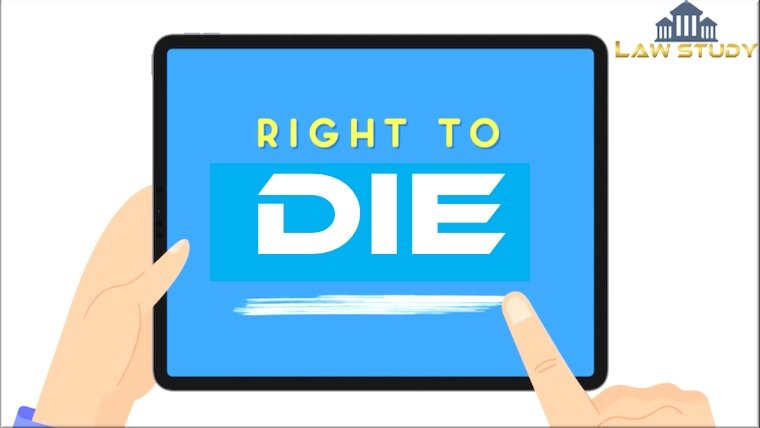Does the Right to Life include the Right to Die in the Fundamental Right Article 21:
In a Historical judgment In Common Cause Vs Union of India (U.I.O), The Supreme Court, CJI “{Chief Justice of India}” Deepak Mishra & a member of the five-judge bench of the apex court delivered an order allowing passive euthanasia (The act of deliberately ending a person’s life to relieve suffering) and held that the right to die with dignity is also included in a fundamental right.
P. Rathinam vs. Union of India,
In P. Rathinam vs. Union of India, the question arises that whether 309 of I.P.C is Constitutional or not.
- The court held that any positive right which is guaranteed in the constitution includes within itself the negative right also and therefore the right to life will include the right to die.
- The apex court said that there is a necessity to humanize the I.P.C. An individual who is already suffering and in that state of mind he attempts to kill commit suicide, cannot be made to languish more by punishing him for such an attempt suicide and endeavour self-destruction.
Gian Kaur vs. the State of Punjab 1996, S.C
- The apex court held that sec 306 of I.P.C was in the constitution, five judges bench judgment delivered by J.S Verma,
- It held that the right to life is not a right that is conferred by the State rather it is a right to which extent per se. it is not in the form of freedom of action rather it is in the form of per se existing right the interpretation that has been applied to Art.19(1)(a) cannot be applied concerning Art. 21.
- If the right to die is allowed then that will create grave societal ramifications that will create a suicidal alarm. Among the people and will sake the societal conscience. Every individual upon on slightest problem in life may commit suicide which will be detrimental to society.
- Sec 309 I.P.C plays a deterrent role upon society in the matters of suicide.
- The P. Rathinam judgment was wrongly decided neither Sec 309 of I.P.C nor Sec 306 of I.P.C is unconstitutional.
Landmark judgment related to passive euthanasia or mercy killing.
Aruna Ramchandra shanbhag vs Union of India 2011
S.C, The apex court held that active euthanasia is illegal in India, and regarding passive euthanasia, S.C held that it is valid if the provided following conditions are fulfilled:-
- The parents or spouse or some other close relative any friend of the victim or the doctors attending the victim can apply for passive euthanasia.
- The application has to be made to the chief justice of that High Court who will examine the bonafide of the applicant and he will appoint a committee of two sitting high court judges.
- The committee will consult 3 reputed doctors in that field and only upon the opinion of such doctors who are part of the team and due inquiry the committee will allow the mercy killing. The doctors will opine that there is no possibility of victim survival and that the victim is suffering unnecessarily.
It means active euthanasia is invalid in India but passive euthanasia is valid if the provided conditions would be fulfilled.
Conclusion
The Right to die with dignity is also included in the “fundamental right” of the Constitution of India.
A grown-up who has the intellectual ability to make an educated decision has the right to decline clinical treatment, including withdrawal from life-saving equipment. An Individual of competent intellectual capacity is entitled to execute progressed medical instructions as per the safeguards.
In the case of handicapped and disabled patients in the absence of advanced clinical directions, “The best interest principle” is to be applied and choices are to be taken by capable and competent skilled specialists.

























